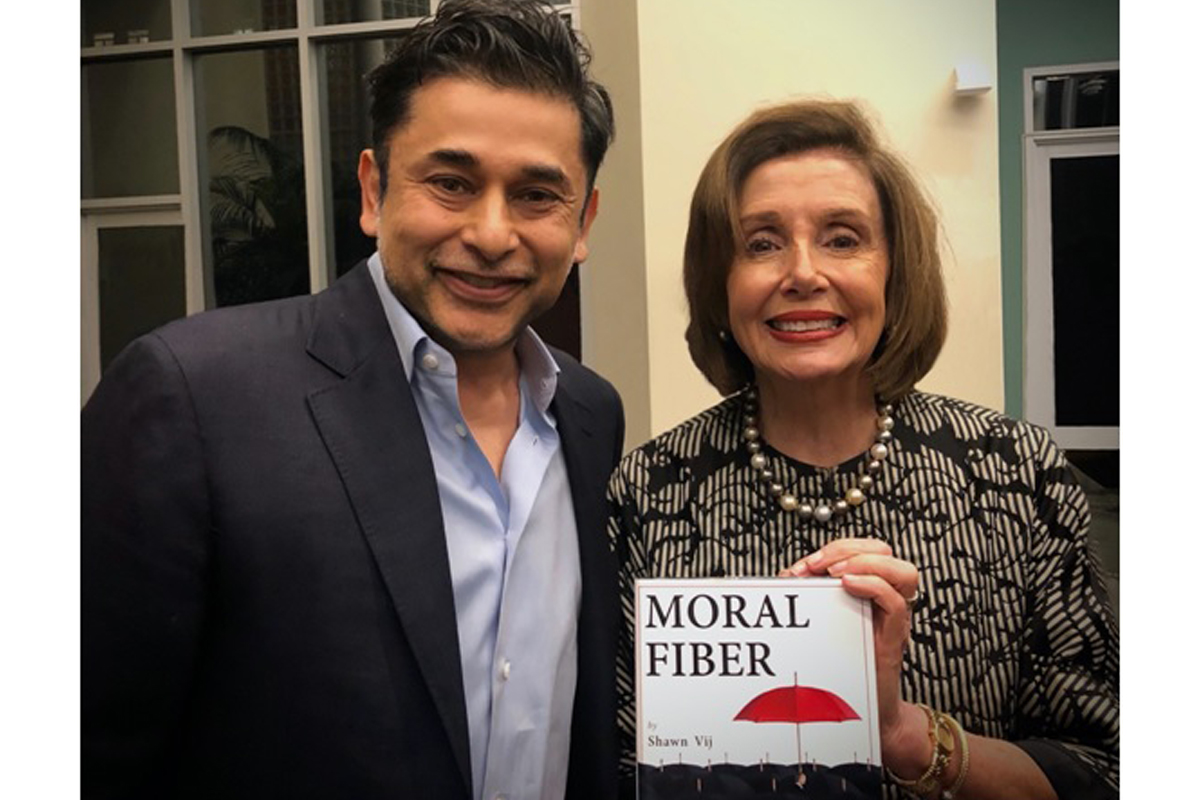India’s Conscious Capitalism Movement with Business Leader, Shawn Vij
What if companies just had a simple underlying mission, which was making people’s lives better around the world. Is it possible to do business with compassion?
Global Businessman Shawn Vij goes deep on this topic in his new book, Moral Fiber –Living Our Values by Wiley Publishing.

What makes a good leader today? Given the level of corruption happening daily in corporate as well as political environments, we are starting to see an uproar from communities across the globe.
People are getting tired of the level of corruption and are looking for authenticity and truth to prevail. Leaders that understand this better will be more successful.
Global Businessman Shawn Vij goes deep on this topic in his new book, Moral Fiber –Living Our Values by Wiley Publishing. A chance encounter with the Dalai Lama radically transformed Vij’s approach to business, triggering a total re-alignment. Vij soon discovered that some of the greatest leaders work from a place of authenticity, compassion and ethics – and are not only happier, but more successful.
Advertisement
Vij was born August 6th, 1969 in Malout, Punjab. He was raised in the US Midwest, Detroit area and currently resides in Seattle. He has held many executive level positions at Ford Motor Company, Ernst & Young, VISA, Deloitte, Microsoft, and Intel Corporation.
As a Global Business Leader, he claims that politicians across the globe today are using Nationalism coupled with anger, hate, greed, and ignorance to fuel rage and divisiveness for their own selfish political gains. Meanwhile, our future is sacrificed on real issues such as the environment, global inequality and health-care. Vij argues that there is an opportunity to reset the compass by living our core values.
In fact, US Speaker of the House Nancy Pelosi was recently asked by a News Reporter, “Do you hate the President?” Pelosi, pointing a finger at the reporter, snapped back: “I don’t hate anybody…. I was raised in a Catholic house. We don’t hate anyone, not anybody in the world…. I pray for the president all the time –” Pelosi said.
“I asked Speaker of the House Pelosi how does she handle the toxicity in Washington?” says Vij. Her response was simple, she pointed to my book. “We have an opportunity for us to act on the one thing that unites humanity: Living our core values,” says Vij.
In fact, Vij discusses how it’s not only important to know your values but also live them. He calls out four key values all leaders must have.
1. Respect:
When a leader holds fast to his or her core values, respect comes naturally. It is very easy to start mud-slinging in politics and smearing candidates for selfish gain. True leaders have the courage to take the higher ground and focus on the issues and concerns that serve the wider-interest. Yes, this is hard to do but customers, voters, communities are smart and they know if you are playing them. Be authentic and respectful.
2. Loyalty:
Loyalty is critical to driving agile decision-making and sustaining good relationships with colleagues and customers. When a leader can stress loyalty throughout the organization, it binds everyone together with an undeniable sense of collective trust which, in turn, drives alignment. It’s hard to reach across the aisle but it can be done and the leaders that have are the ones that made all the difference.
3. Honesty:
It is a form of currency, building a foundation of trust and collaboration. It also requires leaders to be confident enough to reveal their own vulnerability, authenticity, and integrity — which means it starts by being honest with themselves.
Seasoned leaders who have reached professional maturity may come by it naturally; having long ago learned from past experience and embraced their own moral values and beliefs. They teach the next generation how to be strong yet fragile enough to never forget there’s a human element in all of this — and to own decisions and actions. Honesty drives accountability, inspiring others to do the same.
4. Compassion:
Great leaders can set aside their egos and listen with sincerity, humility, and empathy — whether it’s to colleagues, clients, customers, or their communities. Grounded in their own beliefs, they’re not shaken by opposition, but instead can understand that person’s point of view — and are interested in knowing as much as they can about it.
This combination of compassion for others and empathy is an intensely powerful position from which to negotiate. It’s a unifying force, building trust instead of division, and driving collaboration instead of factionalism. And as the Dalai Lama noted, “Compassion reduces fear, boosts our confidence, and opens us to inner strength. By reducing distrust, it opens us to others and brings us a sense of connections with them and a sense of purpose and meaning in life.”
We’re starting to see more leaders taking a stand similar to Speaker Pelosi. Striking hate with compassion and anchoring on living our core values to serve the wider interest. As Vij states, “What’s going to keep us all headed in the right direction is each of us looking in the mirror every day and ridding our own negative thoughts.”
Advertisement